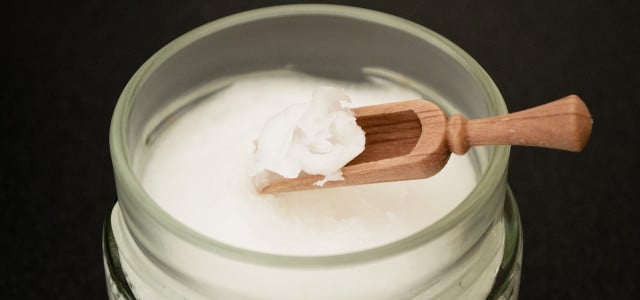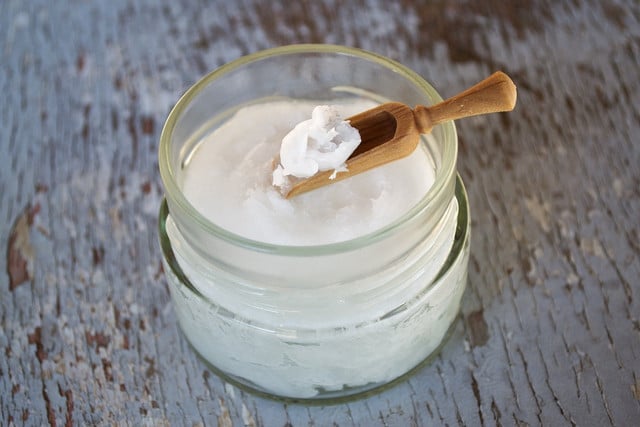
Caring for or brushing your teeth with coconut oil is a trend that is recommended on various internet portals. Find out here how useful or harmful the oil actually is for dental care.
Coconut oil is not only known as a cooking and baking ingredient, but also plays a major role in DIY cosmetics. In dental care, it is used for oil pulling or as an ingredient in homemade toothpaste and other dental care products. Among other things, it is said to work against bad breath and tooth decay and generally improve dental health. However, there is currently not enough scientific research into how useful it actually is to care for your teeth with coconut oil.
Care for your teeth with coconut oil: oil pulling, toothpaste and whitening cream
If you want to care for your teeth with coconut oil, you can use it in different ways:
- As already mentioned, coconut oil is a popular oil for so-called oil pulling. You put some oil in your mouth and move it back and forth for about 15 minutes. Then you spit out the oil. There are few studies on the exact effects of oil pulling. However, a study from 2019 comes to the conclusion that oil pulling is suitable for reducing plaque and in this case is just as effective as mouthwash with chlorhexidine.
- Coconut oil is also used for homemade toothpaste. However, according to experts, it is generally not advisable to make your own toothpaste and brush your teeth with it. This is because the homemade product does not provide sufficient long-term protection against tooth decay or tooth enamel loss, particularly due to the lack of fluoride.
- Coconut oil is also often used as a basic ingredient in DIY tooth whitening creams. You should spread the paste on your teeth to get whiter teeth in the long term. To what extent brushing your teeth with coconut oil actually works has not yet been scientifically proven.
Coconut oil: effective against caries bacteria?

(Photo: CC0 / Pixabay / DanaTentis)
Even though it is generally not advisable to use homemade toothpaste with coconut oil, there is scientific evidence that coconut oil could work against caries bacteria. In a 2016 study, however, researchers were only able to determine this effect with enzyme-treated coconut oil.
This is not commercially available oil, but coconut oil that the scientists had enriched with enzymes before the experiment. In the studies, this oil had an antibacterial effect and in particular destroyed the streptococcus strain Streptococcus mutans – a bacterium that is particularly likely to cause tooth decay.
The extent to which enzyme-treated coconut oil is also effective against other caries-causing pathogens is currently still being researched. In principle, however, researchers believe it makes sense to add enzyme-treated coconut oil to dental care products. However, this does not mean that it is enough to care for your teeth with coconut oil. Instead, the vegetable oil should only be used as a supplement.
Other enzyme-treated foods could also have a positive effect on dental health. Enzymes are also produced in the human body during digestion. An enzyme-treated coconut oil is similar to coconut oil that is currently passing through your digestive tract. According to the researchers, there are some digestive products in the human intestine that have antibacterial properties and thus act as natural antibiotics. However, it is still unclear what potential they could have in the fight against various pathogens.
Read more on Techzle\.com:
- Sustainable tooth brushing: Dental care without plastic and pollutants
- Activated charcoal for teeth: Why it’s not a good idea
- Brushing your teeth after eating: the 30-minute rule is outdated
** marked with ** or orange underlined Links to sources are sometimes affiliate links: If you buy here, you are actively supporting Techzle\.com, because we then receive a small part of the sales proceeds. More information.